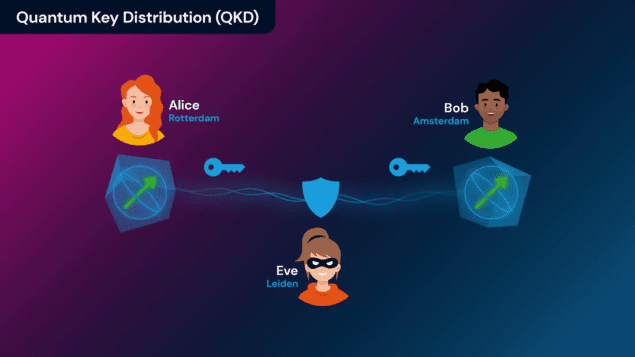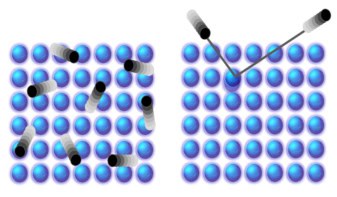
The event I attended on Friday caught my attention for several reasons. Billed as the Quantum Network Explorer (QNE) Launch, it took place in the Hague, the Netherlands, not far from where I live. In a year that has seen so much exciting progress on quantum networks, I was curious to find out what it involved. But I was also drawn by the event’s name, which made it sound a lot like Microsoft’s all-but-defunct web browser, Internet Explorer.
Among Internet-using citizens of a certain age, the name “Internet Explorer” triggers one of two emotions: nostalgia or annoyance. For many (excluding Netscape fans from the 1990s and, of course, the CERN scientists who created the web in the first place), Explorer was their first experience with the World Wide Web. Over the past two decades, however, it has fallen well behind competing browsers such as Chrome and Firefox. So, from the perspective of the QNE launch, I was wondering: will this be the beginning of a new era, one that will eventually lead to us to take the quantum Internet for granted? Or will it fizzle out?
The event was hosted by QuTech, a collaboration between the TU Delft and TNO. From a broader perspective, it was part of the Europe-wide Quantum Internet Alliance, which has the long-term aim of enabling quantum communication applications between any two points on Earth. During the event, 50 people present on-site and around 400 viewing via livestreamed video watched the QuTech physicist Stephanie Wehner push the red button that officially launched QNE. Afterwards, we watched animations and listened to two discussion panels, containing members from Quantum Delta NL, SURF and RIPE NCC, that explained what the quantum Internet was and how QNE contributes to it.
QNE, it turns out, is a development platform based on the software stack that runs a quantum network. Because of the requirement for quantum entanglement, quantum networking software is very different from the software that runs classical networks – and complicated enough that most people who operate it have a PhD in physics. Although QNE has been developed with an actual quantum network in mind, for now, it is running on a classical simulation. In time, this simulation will be replaced with actual quantum hardware.

Is the quantum Internet finally here?
Importantly, though, QNE offers a user-friendly software interface that allows people to start developing applications for quantum networks (you can access it here). The idea is that anybody – with or without a PhD in physics – can start playing with the software and use it to develop next-generation quantum network applications. That way, QNE will train end-users to work with quantum networks, allow for new “killer apps” to come forward and attract new people (including high school students) to the field of quantum.
I believe it’s the right choice for developers to put this new technology in the hands of users, as it should help to accelerate progress. But will QNE lead to a new generation of quantum apps, inevitably named Qapps? Or will it lose ground to competing quantum browsers such as Qhrome or FirefoQs? Only time will tell, but thanks to projects like QNE, we can take at least take a step towards making such daydreams a reality. I guess the only thing left for me is to put my PhD in physics to good use…
- This post was updated on 24 November 2021 to clarify the roles of the organizations involved.



